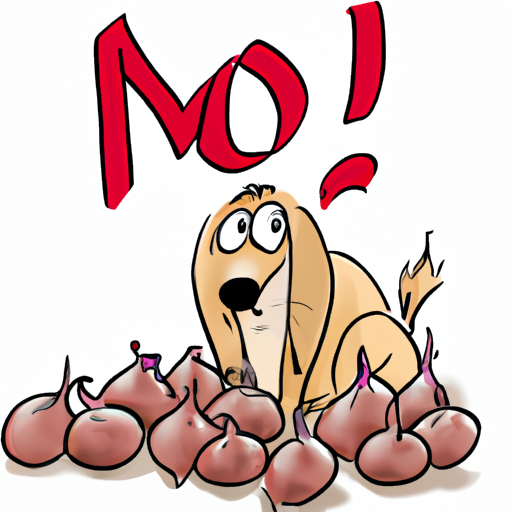Understanding The Toxicity of Onions
You, as a caring and responsible dog owner, must be aware of the potential hazards lurking in your kitchen, and one of these is the humble onion. Onions contain a compound called N-propyl disulfide, which is toxic to dogs. This compound damages the red blood cells in dogs, leading to a condition known as hemolytic anemia.
The Impact of Different Forms of Onions
The toxicity of onions applies to all forms—raw, cooked, powdered, or dehydrated. Even the onion powder found in some baby foods could pose a threat.
- Raw Onions: These are particularly harmful as they have the highest concentration of N-propyl disulfide.
- Cooked Onions: Cooking does not eliminate the toxic compound, making these just as dangerous.
- Onion Powder: This concentrated form can be extremely harmful, even in small amounts.
Symptoms of Onion Poisoning in Dogs
It’s crucial to be aware of the signs of onion poisoning in your furry friend:
- Lethargy
- Weakness
- Decreased appetite
- Pale gums
- Fainting
- Red-tinged urine
If your dog shows any of these symptoms, it’s time to pay a visit to the vet.
Treating Onion Poisoning
There’s no antidote for onion poisoning. However, prompt veterinary attention can save your dog’s life. Your vet may induce vomiting, administer activated charcoal to absorb the toxin, or perform a blood transfusion in severe cases.
Prevention is Better Than Cure
Preventing onion poisoning is easier than you might think:
- Avoid feeding your dog table scraps that may contain onions.
- Read pet food labels carefully to ensure they don’t contain onion powder.
- Keep onions out of your dog’s reach.
| Prevention Measures | Description |
|---|---|
| Avoid Table Scraps | They may contain onions |
| Read Pet Food Labels | Some may contain onion powder |
| Store Onions Safely | Keep them out of your dog’s reach |
Frequently Asked Questions
Q: Can a small amount of onion hurt my dog?
A: Yes, even a small amount can be harmful.
Q: Are other foods in the onion family dangerous?
A: Yes, foods like garlic, leeks, and chives are also toxic to dogs.
Q: What should I do if my dog eats onion?
A: Seek immediate veterinary attention.
Remember, as a caregiver, your dog’s health and wellbeing is in your hands. Stay informed, be vigilant, and keep your pup safe from potential hazards.



